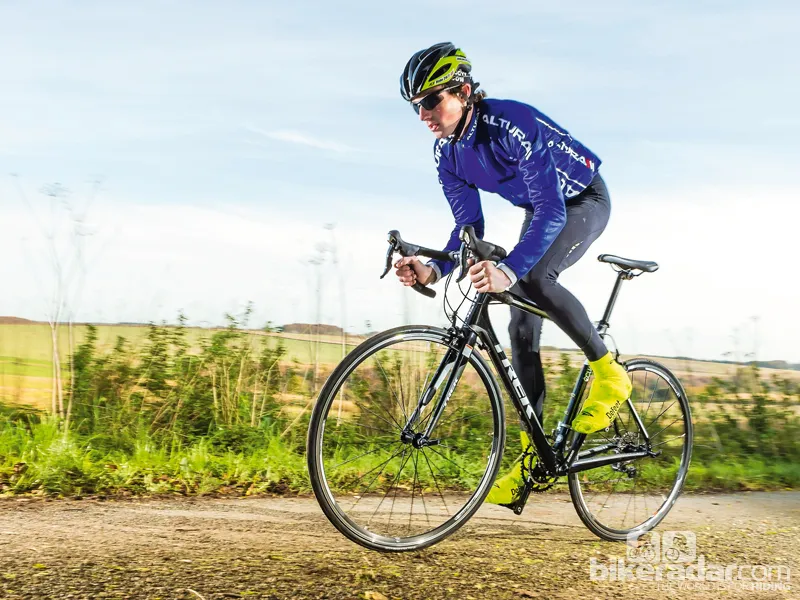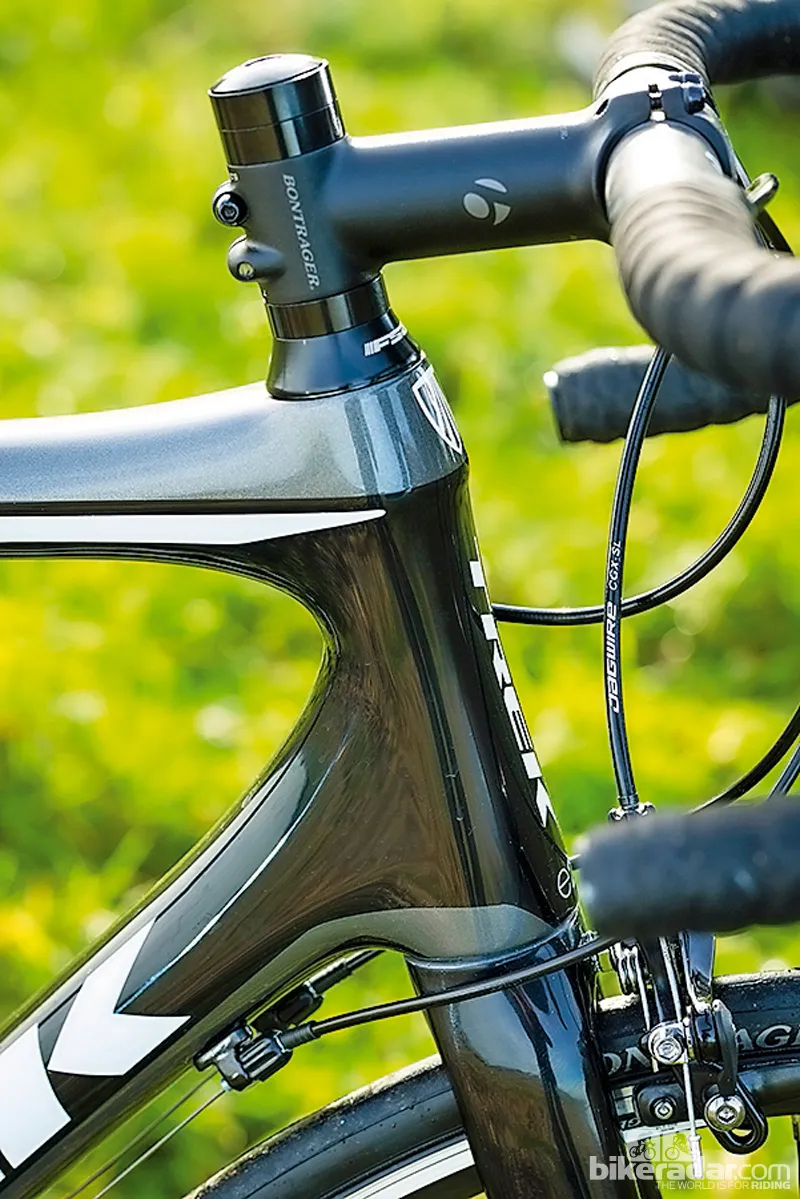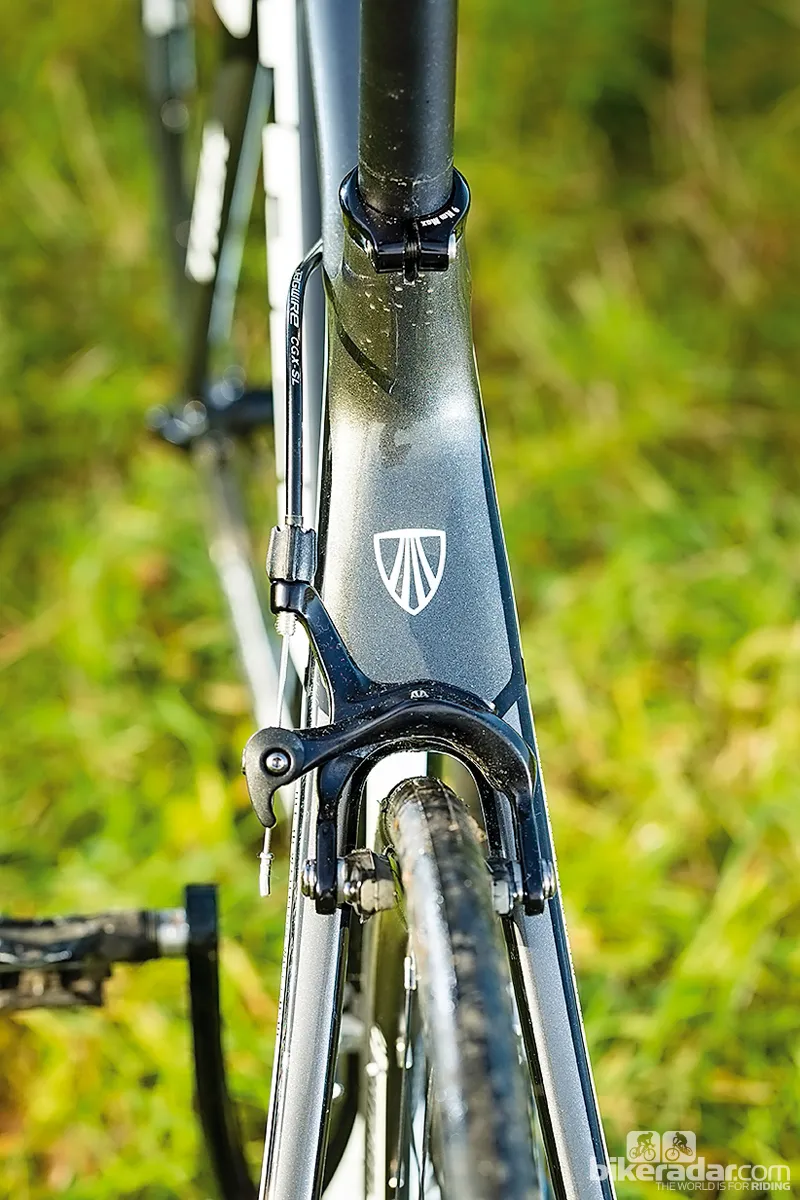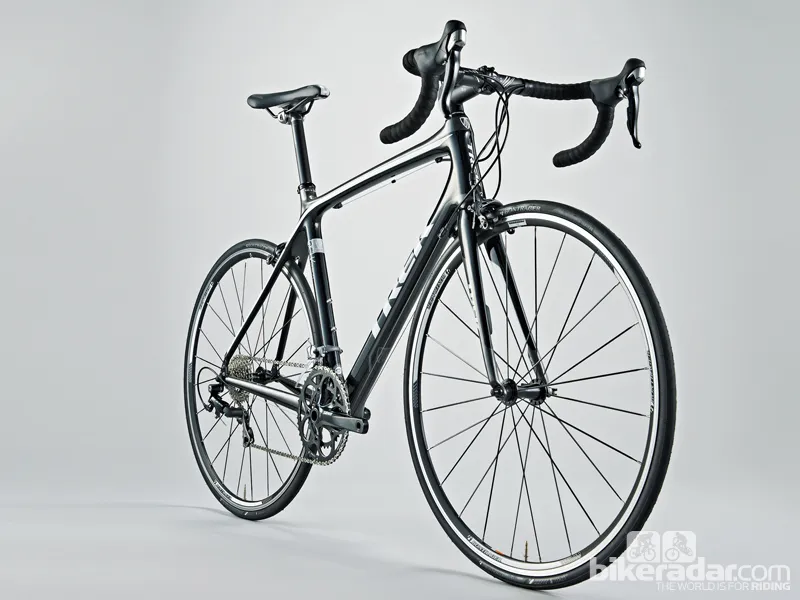Trek's 3 Series is the third up in its seven-model road bike range – and the first to offer carbon frames. It may be Trek's lowest price carbon offering, but the company is keen to stress how much technology has gone into this frame.
Certainly the lines look familiar, and there is a good combination of features aimed at performance and practicality, which makes a lot of sense at this price.
- HIGHS: Fine riding, versatile frame and do-anything gearing
- LOWS: The wheels lack go and the brakes are slow to slow
- BUY IF... You want a fine day-long ride with scope to upgrade
The 3.1's tapered head tube and steerer come in Trek's slightly taller H2 fit, which will suit most riders and does away with ugly-looking stacks of spacers. We easily found a good position that was low enough on our 56cm model, even with the compact bar, which sensibly makes the drops more accessible.
Bontrager supplies everything on the Madone except for the groupset, and it's all reliable kit, the Affinity 1 saddle being the item most likely to split opinions – we found it to be a good shape but a little over-padded.
The OCLV (optimum compaction low volume) frame uses Trek's favoured construction method to minimise the quantity of resin and carbon needed and produce a light, strong frame. A giant BB86.5 bottom bracket allows the down tube to fill almost all of the width between the cranks, necessitating protective shields on the chainstay and down tube to guard against an unshipped chain.
The right fork leg incorporates an ANT+ compatible Speed Trap speed sensor, while Trek's neat hidden dropout mounts allow full-length mudguards to be fitted.
The Trek is available with an all-Shimano drivetrain or SRAM; our model came with Shimano 105 plus a Tiagra front mech and SRAM GXP compact chainset.
Braking is courtesy of some unbranded, mudguard-friendly long-reach dual-pivot callipers. The drivetrain works well together, and benefits from the chainset's 30mm axle that makes good use of that super-sized bottom bracket shell, but it does have a bit of a parts bin feel to it.
The Madone's ride quality is firm but composed over rougher road surfaces and unerringly stable, but with an excellent feel and a rapidity that shows its long racing lineage. The handling while cornering and descending is surefooted, but could be improved by more positive brakes.
With a 30t sprocket, the lowest gear should conquer the steepest climbs, but the Bontrager Approved wheels aren't the most willing climbers and seem to dull efforts, putting them at odds with the frame. Overall, the Trek's slightly docile character lends itself to lengthy rides, but there's a racer lurking within that some faster hoops could release.



